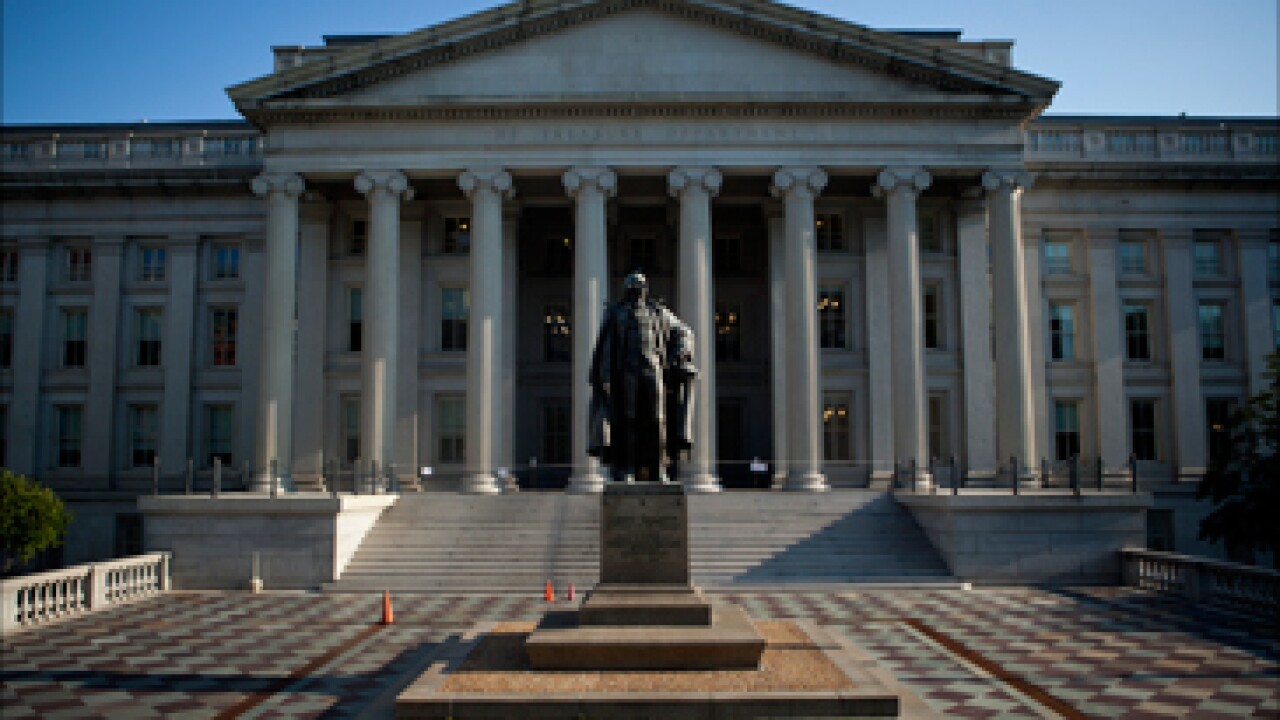-
Goldman Sachs Group Chief Executive Officer David Solomon defended the need to support traditional energy companies, batting away demands from climate activists to abandon their clients in that sector.
September 25 -
Protesters who were arrested after blocking the entrances to big-bank offices in New York say they'll keep pushing for action on climate change. "I think the intensity of protests will only grow from what it has been over the last week," one activist said.
September 24 -
The nine-part guidance establishes best practices for financial institutions that want to pursue carbon-neutral strategies. In a speech, the Treasury secretary cautions firms against being "left behind."
September 19 -
The storm is slamming housing markets already beset by some of the nation's highest property insurance premiums.
August 30 -
The House Financial Services Committee held a subcommittee hearing with senior staff from banking agencies, while the oversight branch of the panel questioned some large banks on their ESG efforts in asset management units.
July 18 -
A scorecard from the sustainable finance advocate Ceres found that federal agencies overseeing the financial system have adopted measures to account for climate-related financial risks but have not yet issued enforceable regulations.
July 12 -
A report from the Treasury Department's Federal Insurance Office urges state regulators to spruce up their toolkits for monitoring and mitigating the impact of climate change on homeowners insurance.
June 27 -
Pledges to get to net-zero funded emissions by 2050 appear to be falling by the wayside as oil companies expand their fossil fuel extraction operations.
May 26The Sierra Club -
Ajay Banga's election will give the Biden administration a chance to evolve the anti-poverty lender toward a greater focus on climate change.
May 3 -
Fifty congressional Democrats urged regulators to propose "strong" climate disclosure regulations in finalized rules that are expected to be released in the coming weeks.
March 6 -
JPMorgan Chase, Morgan Stanley and Bank of America threatened to leave climate group NZBA late last year if limits on their fossil-fuel activities were imposed, concerned that they would be legally bound, according to people familiar with the process.
February 21 -
Six large banks will have to estimate the impact of a major hurricane in the Northeast and one other climate disaster on their real estate portfolios. Policy-related risks will also be explored.
January 17 -
With prodding from their regulators, U.S. banks made some progress on assessing climate risk, but did not move as quickly as activists wanted. At the same time, new federal support for clean energy provided opportunities for lenders.
December 30 -
The state's Department of Financial Services issued proposed guidelines on how banks and mortgage lenders should manage climate-related risks. But the guidance was quickly slammed by a trade group representing community banks.
December 21 -
The Federal Reserve Board of Governors voted 6-1 to seek public comment on a new regulatory framework for climate-related financial risks. The requirements would add to existing risk management standards.
December 2 -
Dianne Dobbeck, head of the Federal Reserve Bank of New York's supervision group, said the banking system is sound, but potentially destabilizing risks must be monitored and addressed.
December 1 -
The growing anti-ESG backlash from Republican lawmakers may please the base, but as a practical policy it creates far more problems than it solves.
November 22 American Banker
American Banker -
Acting Chairman of the Federal Deposit Insurance Corp. Martin Gruenberg said regulators won't tell banks who to lend to, but the government won't be there if their investments go bad.
October 3 -
A half-dozen of the largest banks in the country will participate in the Federal Reserve's climate scenario analysis exercise next year. Findings from the program will inform supervision policies on managing climate and transition risks.
September 29 -
The operational melding of highly regulated banks and less-regulated fintechs led acting Comptroller of the Currency Michael Hsu to warn of the potential for another financial crisis.
September 7


















